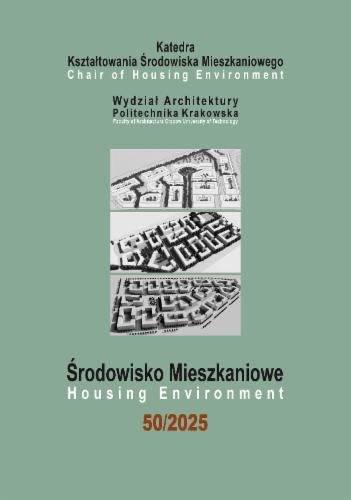Anti-Crisis Mobile Dwelling: From Container Shelters to Neighbourhood Space
Data publikacji: 28 mar 2025
Zakres stron: 57 - 64
DOI: https://doi.org/10.2478/he-2025-0005
Słowa kluczowe
© 2025 Łukasz Piątek et al., published by Sciendo
This work is licensed under the Creative Commons Attribution-NonCommercial-NoDerivatives 4.0 International License.
The increased number of conflicts and disasters worldwide, including recent ones such as the Russo-Ukrainian War, has led to a growing need for housing solutions for displaced populations. The traditional refugee and IDP shelters have a primary shortcoming of turning into long-term settlements despite their temporary nature, leading to social and economic problems. The Anti-Crisi Mobile Dwelling (ACMoD) project responds to these challenges, aiming to develop rapid design and construction solutions for mobile housing complexes. The project is based on three essential foundations: mobility through standardised container units, rapid integrated design processes, and life cycle control to ensure long-term usability. Phasing is emphasised as a crucial aspect of the project, allowing for the incremental development of settlements from emergency shelters to permanent residences.
According to the methodology, including research by design and speculative design approaches, the paper describes the conceptual architectural design developed to prove the concept of ACMoD settlements using a land plot in Chełm, Poland, as a potential location. The phasing strategy addresses urban, architectural, and interior design considerations.
 Profil Orcid
Profil Orcid